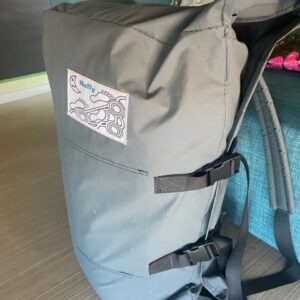Ever felt something tug on your heartstrings, calling you to make a difference?
Now is your opportunity to answer that call.
With more kids needing safe temporary care, there’s no better time to become a foster carer.
As growing numbers of families face challenges such as family breakdowns, substance abuse, and mental health issues, more children are finding themselves in need of safe and nurturing care.
This is why now is the right time for you to become a foster carer.
Home is where the heart is.
We all know that foster carers make a difference. By opening your door and offering a loving home to a child in need, you can make that positive difference in the life of a child.
Foster care is about much more than just about providing a place to stay.
Beyond providing all-important stability for a child, being a foster parent is an opportunity to create positive relationships and joyful experiences that help children build resilience and the life skills they need.
A decision to offer your home as a foster carer is about providing compassionate nurturing care that empowers children to thrive. While many children stay in foster care for a short time, the positive impact you can have will last a lifetime.
Time for some self-blossoming.
Foster care is the nurturing soil which allows children to grow. Every foster carer is provided with comprehensive training on parenting approaches that include first aid, behaviour management and self-care.
But the good stuff is in the self-discovery. Like the kids in your care, you will also cultivate your resilience, empathy and interpersonal skills. Interacting with children from diverse backgrounds creates an understanding of human complexities, which will assist you to expand your perspectives and hone patience, adaptability, and flexibility, all while fostering inner strength and the capacity to remain composed when navigating life’s challenges.
The village supports you, too.
When you become a foster carer with Uniting, you’ll have a specialised support team with you every step of the way.
Access to our dedicated expert care team includes having a designated Case Worker for ongoing support and practical assistance. We provide around the clock support so you’re never on your own.
Although foster care is a voluntary role, you will receive a reimbursement towards the day-to-day costs of caring for a child or young person. These payments are tax-free and made fortnightly by the Department of Families, Fairness and Housing (DFFH).
Where extra expenses are incurred beyond what is considered the ordinary costs of care, additional financial support may be available.
If you’re considering becoming a foster carer, you will have all the assistance you need to do so with confidence.
Foster the way you want.
One of the misconceptions about foster care is that it requires a long-term commitment.
While some placements may indeed be long-term, there are various flexible options available to suit you.
Fostering a child can be short or long term option. A range of care types are available to ensure the best fit for every carer and child. You can choose to care for a night, a weekend or longer, including months or years.
Some carers may choose to provide only one type of care, while others may provide a combination of care arrangements. We understand that you may be new to fostering, so we’ll match you to a type of care suitable to your current lifestyle and responsibilities.
It’s a ride of rich experiences.
Becoming a foster carer isn’t just a role; it’s a collection of rich experiences brimming with profound moments of connection, growth, and fulfillment.
As a foster carer, you’ll witness the transformative power of love and support while shaping the lives of vulnerable children and young people.
It’s an experience that will challenge you, yet inspire you, and ultimately leave an indelible mark on both carer and child, creating memories and bonds that last a lifetime.
Ready to embark on an epic quest in 2024?
As you contemplate your goals and aspirations for the year ahead, consider the profound impact you could make by opening your heart and home to a child in need.
The rewards of fostering are immeasurable, not only for the children you support but also for yourself.
So why wait? Start your fostering journey today with Uniting and be a part of something truly impactful.
We support foster cares across the eastern, south-eastern and western regions of Melbourne, as well as Ballarat, the Central Highlands, Wimmera and Gippsland.
Get in touch and take the first step towards making a difference in 2024.
